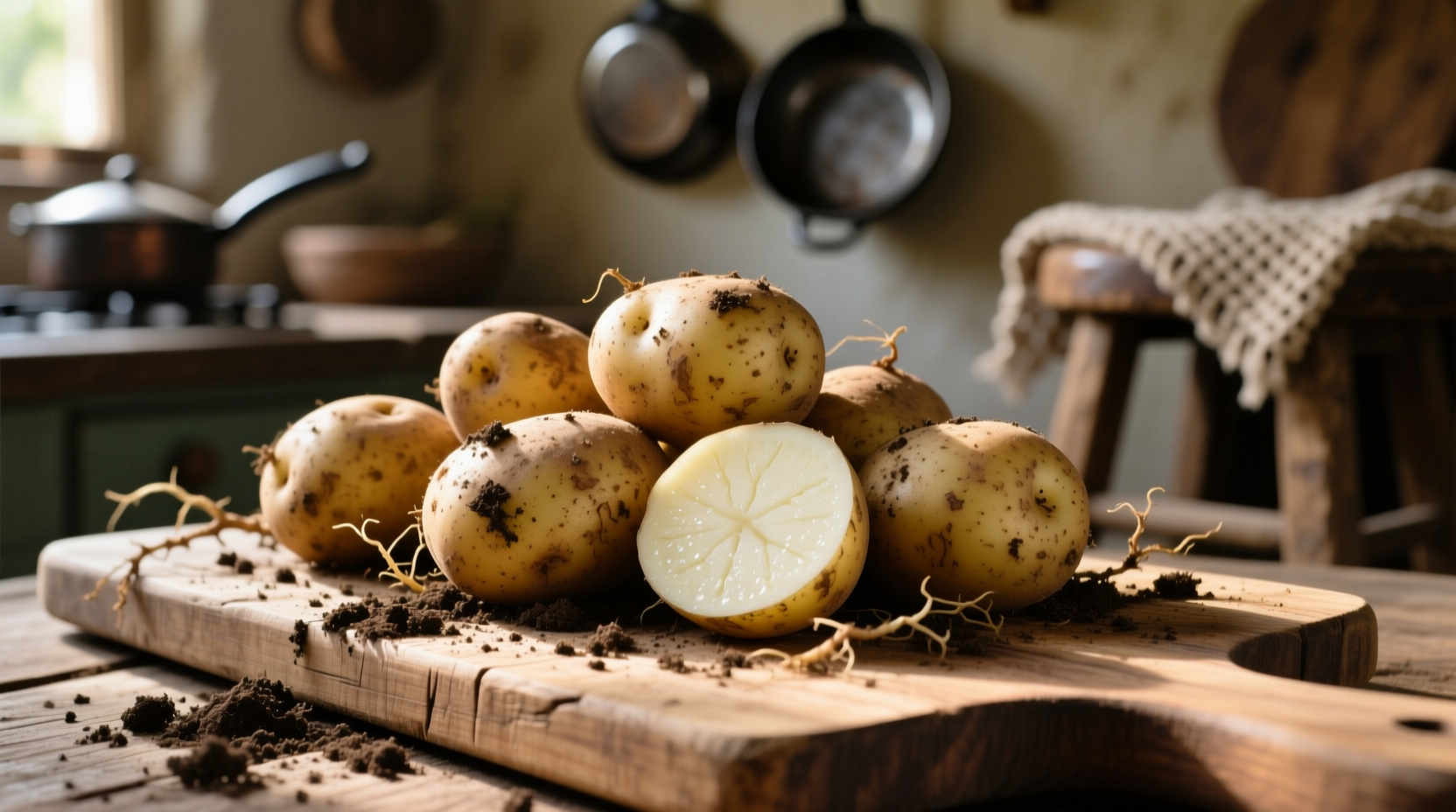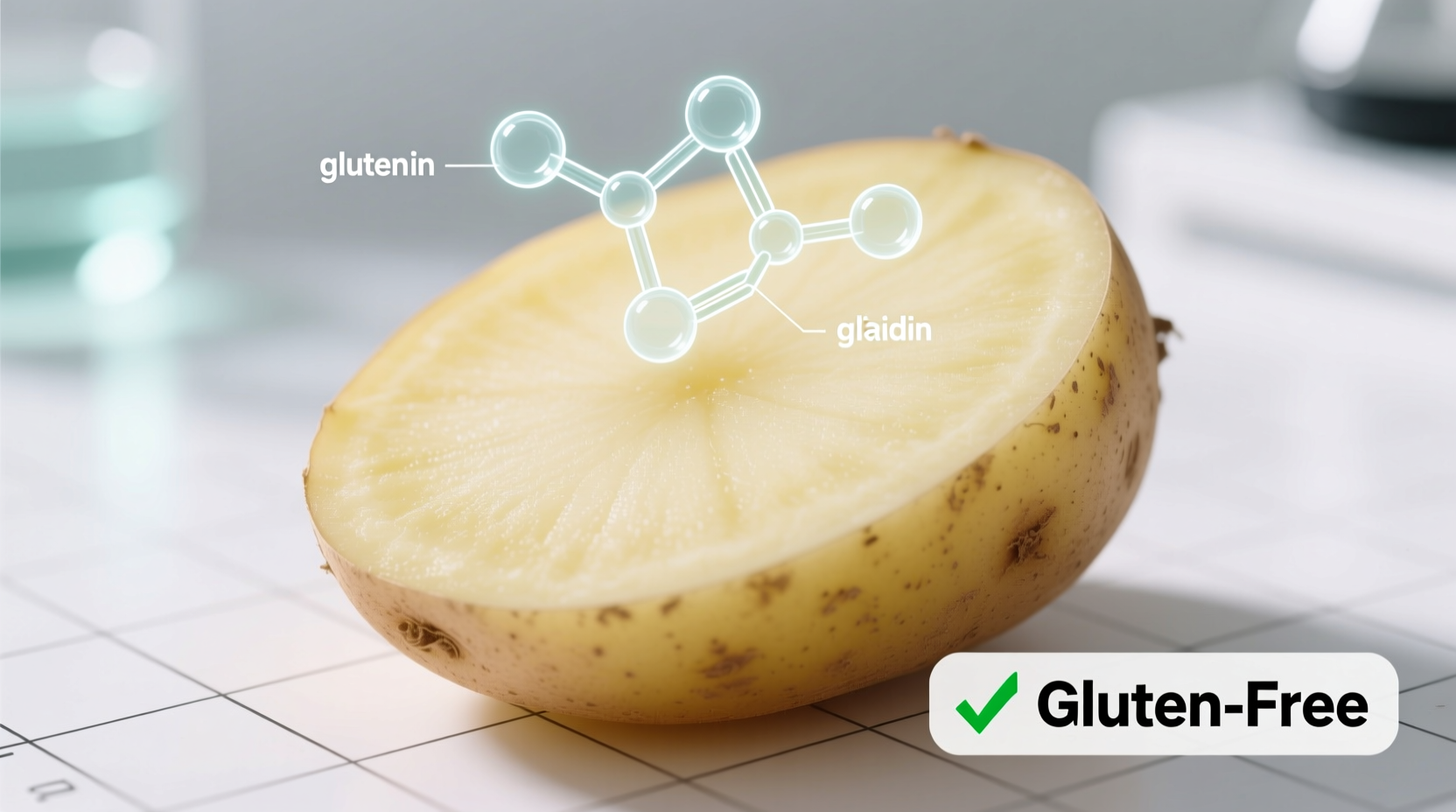Discover exactly why potatoes are gluten-free, when they might become unsafe, and how to incorporate them safely into your gluten-free lifestyle. This guide provides science-backed information you can trust, plus practical tips to avoid hidden gluten risks.
Understanding Gluten and Its Natural Sources
Gluten is a protein composite found naturally in certain grains, not in vegetables like potatoes. It's primarily present in:
- Wheat (including varieties like spelt, kamut, and farro)
- Barley
- Rye
- Triticale (a wheat-rye hybrid)
Potatoes, being tubers from the Solanum tuberosum plant, contain no gluten proteins. They're composed mainly of starch, water, and fiber—making them inherently safe for gluten-free diets when prepared properly.
| Gluten-Containing Foods | Gluten-Free Foods |
|---|---|
| Bread, pasta, cereal | Plain potatoes, rice, quinoa |
| Beer (unless specifically gluten-free) | Corn, millet, buckwheat |
| Soy sauce (traditional) | Beans, lentils, peas |
| Processed meats with fillers | Fresh fruits and vegetables |
When Potatoes Might Contain Gluten
While potatoes themselves are gluten-free, cross-contamination and processing can introduce gluten. Understanding these risk points helps maintain a truly gluten-free diet:
Cross-Contamination Timeline in Food Preparation
Gluten exposure can happen at multiple points:
- At the store: Shared bins or handling equipment
- During transport: Shared trucks with gluten-containing products
- In restaurants: Fryers used for both gluten-containing and gluten-free items
- At home: Shared cutting boards, utensils, or cooking surfaces
The Celiac Disease Foundation confirms that even small amounts of gluten (as little as 50 parts per million) can trigger symptoms in sensitive individuals. This is why preparation methods matter as much as the potato itself.
Safe Potato Preparation for Gluten-Sensitive Individuals
Follow these evidence-based practices to keep your potatoes gluten-free:
At Home
- Use dedicated cutting boards and utensils
- Clean surfaces thoroughly before preparation
- Store potatoes separately from gluten-containing products
- Choose fresh potatoes over pre-seasoned varieties
When Dining Out
- Ask if fries are cooked in dedicated gluten-free fryers
- Request plain baked potatoes without pre-made toppings
- Avoid potato dishes with sauces unless confirmed gluten-free
- Communicate your dietary needs clearly to restaurant staff

Common Misconceptions About Potatoes and Gluten
Several myths persist about potatoes and gluten. Let's clarify with facts:
- Myth: Potato starch contains gluten
- Fact: Pure potato starch is gluten-free, but verify processing methods
- Myth: All french fries are gluten-free
- Fact: Many restaurants fry potatoes in oil shared with breaded items
- Myth: Potato-based products are always safe
- Fact: Pre-made potato products often contain gluten additives
The FDA's gluten-free labeling regulations require products labeled "gluten-free" to contain less than 20 parts per million of gluten. However, plain potatoes don't require this label since they're naturally gluten-free.
Practical Gluten-Free Potato Options
Enjoy these naturally gluten-free potato preparations:
- Baked potatoes with plain toppings
- Boiled or steamed potatoes
- Roasted potatoes with olive oil and herbs
- Mashed potatoes made with gluten-free ingredients
- Homemade french fries cooked in dedicated oil
For packaged potato products, always check labels for phrases like "may contain wheat" or "processed in a facility with wheat." The Academy of Nutrition and Dietetics recommends this careful label reading as essential for maintaining a safe gluten-free diet.
When to Exercise Caution with Potato Products
Some processed potato items require special attention:
- Instant mashed potato mixes (often contain gluten as a thickener)
- Pre-seasoned potato products
- Canned potato products with sauces
- Restaurant-prepared potato dishes
- Potato-based soups and chowders
According to research published in the Journal of Human Nutrition and Dietetics, cross-contamination remains the most common source of accidental gluten exposure for people with celiac disease—even with naturally gluten-free foods like potatoes.
Conclusion: Potatoes as a Gluten-Free Staple
With proper handling and preparation awareness, potatoes remain one of the most versatile and safe foods for gluten-free diets. Their natural gluten-free status, combined with nutritional benefits like vitamin C and potassium, makes them an excellent dietary foundation. By understanding potential contamination points and taking simple precautions, you can confidently enjoy potatoes as part of a healthy, gluten-free lifestyle.











 浙公网安备
33010002000092号
浙公网安备
33010002000092号 浙B2-20120091-4
浙B2-20120091-4